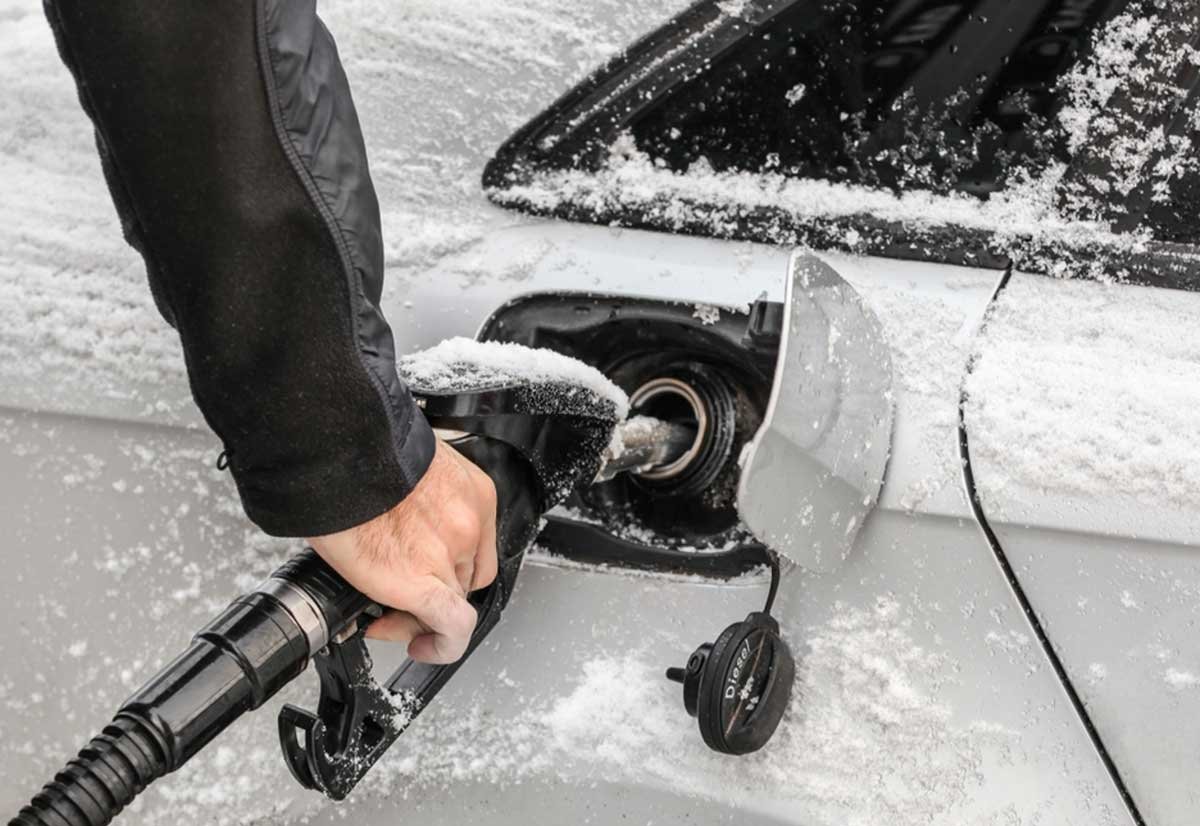It’s no secret that cold weather can be rough on diesel trucks. You might notice problems when starting up your truck, such as slow start times or rough idling.
The culprit is diesel fuel. It’s made up of hydrocarbons that freeze up when the temperature drops below 40 degrees Fahrenheit. When this happens, the fuel may appear cloudy or become gelatinous. As molecules bond together, the fuel will start to clog internal components to the point where the engine may no longer start.
So, what can you do to prevent this from happening? Use these five tips to help your diesel truck cope with the stress of winter:
Consider a Fuel Additive
You can always use an anti-gel fuel additive to prevent the molecules from bonding together. These products lower the freezing temperature of the fuel, so it won’t gel or appear cloudy on frigid days. They also help the engine run more smoothly in the winter by breaking up the fuel. Many fuel companies will add additives to their products as well in the winter. This is what’s often known as the “winter blend.”
Experts say it’s best to switch to a winter blend 15 degrees above cloud point, or the point at which the fuel will begin to cloud. If temperatures start to dip near 30 degrees F, it’s time to use additives.
However, it’s important to remember that these additives and winter blends contain less energy than traditional diesel fuel, which reduces mileage. Despite these drawbacks, they remain essential in certain conditions.

Use a Block Heater
Many manufacturers install block heaters on diesel engines to prevent cold starts and long idling in the winter. The built-in heater will keep your vehicle warm overnight or when it’s not in use for a faster start-up in the morning. It keeps fluids at the right temperature, which can help reduce wear and tear.
Make sure your vehicle has the feature and learn how to use it properly before hitting the road. If your truck doesn’t come with a block heater, you can try installing some aftermarket heaters to help keep the engine the right temperature. These devices are fairly inexpensive to install with some going for just a $100 or more.

Inspect the Turbocharger
The summer months can do a number on your turbocharger. As the temperature rises, the air becomes denser, which means the amount of oxygen it holds decreases. The turbocharger will have to work harder to compress more air to achieve the same amount of boost. If the turbo gets too hot, it will no longer be able to increase its speed, which means acceleration and torque are reduced.
Check your turbocharger before starting the winter season. Make sure all components are in good working order. Watch out for signs of turbo lag and other issues that can affect performance on the road. Inspect the turbo actuator to ensure the system is working efficiently. Replace your 6.0 VGT actuator sooner rather than later before the worst of winter arrives.
The summer can also be hard on your vehicle’s EGR cooler. Test the cooler to make sure it’s still doing its job after several months of excess temperatures. Shop for new EGR coolers based on your make and model.
Test the Battery
If it’s been a while since you’ve replaced your battery, now may be the time. The cold weather reduces battery efficiency, which may cause it to die when you least expect it. Freezing temperatures tend to reduce performance by 30% to 60%. Most batteries use an electrochemical reaction to send signals to the terminal ends. The cold slows down this process, leading to slow start times.
Inspect Your Glow Plugs
Your glow plugs are designed to heat up the fuel as it goes into the combustion chamber to make sure the fuel burns quickly and efficiently. This will help you overcome the many challenges of driving in winter. That’s why it’s so important to inspect your glow plugs before hitting the road.
Damaged or worn glow plugs often lead to hard starting, rough idling, poor fuel efficiency, and white or black smoke if unburnt fuel escapes through the exhaust.
Some people will use high-amperage battery chargers to help their batteries cope with the loss of power and efficiency. However, these chargers can be so strong that they may actually burn off the glow plugs. If you’re trying to juice up your battery, use an intelligent charging system to make sure your glow plugs remain intact.
It’s always best to give your diesel truck a onceover before hitting the road in the winter. Cold weather raises the stakes in more ways than one. A small problem can easily turn into a major catastrophe if you get stranded in the middle of nowhere.
Make sure every aspect of your diesel truck is running at peak efficiency. Replace any damaged or worn diesel parts to prevent potential breakdowns.
The winter can easily throw a wrench in your plans unless you take the proper precautions. Complete these steps to get through the season without breaking down or damaging your diesel engine.














Comments